| Umělec 2002/4 >> Rafani on Guard! old order and a new reality | Просмотр всех номеров | ||||||||||||
|
|||||||||||||
Rafani on Guard! old order and a new realityUmělec 2002/401.04.2002 Ivan Mečl | theme | en cs |
|||||||||||||
|
“We are building onto the everyday experience of wide social strata; we analyze it and look for points that go beyond the sphere of the mundane. With a conscious art form we attempt to reflect their interests, dreams, fears, and ambitions. What we express is in harmony with their ideas; we speak the language of bitter truth.”
Excerpt from the Rafani Constitution If the thoughtful reader goes through the constitution of the art group Rafani and compares it with their recent works and actions, he will come to three conclusions. The simplest one is that the group operates under the maxim “the end justifies the means,” and so they can include even anarcho-avantgarde actions and use destabilizing means for achieving their high aims. Even those that are not reconcilable with its firm and moralizing ideologies. The other possibility is a step beyond the constitution because of the philosophical movement inside the leadership cell and their sociological insight. The third possibility, that Rafani have been taunting us from the beginning, I will assume to be untrue, so that this article can be written at all. If this were true, then there would be nothing. Building a complete platform from the people living in the current skeptical middle European society with its spiritual climate — especially in the sphere of art — is not easy. It is precisely in a contemporary society like the Czech Republic’s that this kind of experiment is most difficult. Here doctrinaire activism and totalitarianism itself are just a parody of the application of the ways of the Aryans or our eastern brothers. Compromise, or what is nobly, yet deceptively, called “consensus” in the Czech Republic is officially the highest objective of nation-wide endeavors. Anyone who flouts the norm is, at the very least, branded as being an intolerant person; at worst as a parasite of democracy. Of course it is also because many foreign words, like “democracy,” are empty expressions. The Czech language of all the languages is the most distant from reality. And as a tool for naming objects or ideas it’s completely useless. It’s no accident that abroad it was marked in history as being the language of liars, racketeers, tricksters and other fairground illusionist vermin. Based on these and other bad references about the Czech element, Czechs were not enthusiastically welcomed into secret hermetic societies or organizations where the foundation consisted of order, self-discipline and discretion. Of these unfortunate reasons, I would choose the second: the sociological penetration of Czech society and the resulting philosophical movement in strategy. First it is be necessary to give a swift kick to the public’s mental behind, and then it will be possible to get down to didactic activities, they probably say to themselves. Because if they were really coming out of the “everyday experience of a wide social strata,” the result of the analyses would be points referring to the need to steer society away from supermarkets and commercial media. But this would be an action that is already exercised in the ideological shallows by parodic Kamera Skura or agitational PodeBal. This path would never allow Rafani to step outside the “sphere of the mundane.” The development of society is also accompanied by the transition of some originally creative and avantgarde genres into the structure of mass entertainment. Their patterns were revealed and mechanized. Maybe the quality wasn’t diminished, but the price definitely, the ability to concentrate and the willingness to discern. Rafani’s most recent activities show very clearly that to “speak the language of bitter truth” does not necessarily mean to reflect the interests, dreams, fears, and ambitions of the wide social strata; however, the artists might wish to. Neither the media nor the well-known personalities who comment on their work express a willingness to penetrate the formal shell of what they do. This is also made more difficult by various levels of complication in communicating single acts. This creates a bitter path from the viewer to the work. Bitterness is a taste, and for lazy viewers a huge complication. Rafani don’t leave the truth alone. They want “the bitter truth” and they harvest the fruit of their planting. Democracy or Cacophony “We wish to create a high structured and internally strictly organized all-society platform whose goal is the attainment of a future with a humanity of higher quality.” from the Rafani Constitution. The Czech form of democracy, coming from a society formed by inconsistent and corrupt totalitarianism, momentarily ruled by a spiritually and physically impotent geronto-oligarchy, is the worst possible environment for the contemporary artist. In the structure of such a society the artist is seen as a weak-minded emeritus clown that makes a living from house-to-house sales. And on top of that, he can do whatever he wants. With its development, society has also arrived at the point of being immune to troublemakers and provocateurs. But not because it is more tolerant, but because it pays off. The artist is now outside of society’s ability to distinguish, and so his attempts no longer have meaning. His actions, at least the one’s that are noticed, are misinterpreted or discussion about the work is conducted on the level of its average usefulness for the society. Sensitive individuals are therefore subject to various forms of self-destruction, be it graphomania or alcoholism, because they can no longer even become elements of subversion. The inhabitant of contemporary society reacts only to impulses or dangers that could be labeled symbols emerging out of pedagogic and media codification. In these fields, society has once again foundered and the relativity of the relationship between the seen and what is ascribed to it is for society as horrifying a notion as it was at the time of Christian darkness. If in the past an ugly appearance was ascribed to witches and from time to time all the elderly and mentally handicapped from villages were burnt at the stake, then today with the advance of humanism raising awareness towards other types of differently mannered groups, their lot in life is also ascribed to them, whether it belongs to them or not. This can also be used for their own benefit. After all, a well-organized group with legible indicia on their clothes functions effectively within the muddle of democracy and results in the form of fast entrenchment come far sooner. Initially, this doesn’t depend on an exact understanding of the attempt. In free jazz it’s better to be a trumpet than a triangle. Rafani is betting on it. They have been labeled as the artists of half-fascist artistic spats which, with the goals they have staked out and declared, a firm rule apparently fulfilling all of their qualities. However one of their latest presentation projects disrupts ingrained ideas about Rafani. Czech Forest is an apparently all too insidious intellectual recycling of barbarity and human stupidity. Even if this is connected to the dark romantic gestures of previous installations that look like the visual games of nationalist cults, it is a combination of archived material with the intention of demonstrating the moral appeal of something new. But you will not find a surprising intelligible moralist message here, like for instance the presence of humanness, even if a little different, strange. These infamous authors of total doctrines would certainly give a spanking to anyone choosing to use the phrase “too human.” It’s also necessary to ask here, what is the actual essence within the “higher quality of humanity” the Rafani are trying to reach? Similar thought constructions had nothing in common with humanness. The human dimension should mostly be a complete solid system of virtue and instinct. Originally it was a soggy, sensitive and intuitive mess in which everything seemed nice but with romantic spirit. But as long as Rafani allow the human weakness of searching for morals among allegories and symbols into their strict concept of a “humanity of a higher quality,” they have a lot to fear from excessive understanding in the art public, and the tide of sensitive romanticism for their own order. The exhibition Czech Forest in Gallery Vaclav Špála was not a new project. It originated from a prohibited exhibition whose non-realization flowed into the shaved heads of all the Rafani, and they responded with a public burning of flags on the square of the municipality of Bílina. Of course the realization of such a project in the center of Sudetenland, bearing in mind the slogans “Don’t stop hating the Germans” or “Treat the Germans like the victors you are,” would come off with great aplomb. The Bílina graphic cycle was to be in support of the forest installation made from old Christmas trees with sporadic sound that by no accident is reminiscent of Nazi heiling. In Prague the graphic sheets in simple but massive dark wooden frames were accompanied by a candleholder merry-go-round where fairytale puppets spun in a circle on the hot wind made by the flames of the candles and a actuating propeller unit. The original game that all of us loved — most made from light plywood — here were painted black and figures from a fairytale replaced the grotesque heroes from the graphic sheets. A large border of wood brought the otherwise clean and depersonalized installation back to the forest, as if forgotten along the path of a Sudetenland woodcutter or a reminder of a tidy little campfire. This altogether successful thematic exhibition, which in its conceptual compactness and formal precision, is all too rare a sight. It is a reminder of the unusual installation by the group Irwin from the 1980s. But if we devote our attention a little longer to the solo graphic cycle, we begin to discover an allusion to this previously mentioned overreaching into pure strangeness. The idea of rendering the ethnic conflict between the Czechs and the Germans in the form of commercial graphics is connected to the lesser-known cycle by Rafany called Bömisch, which doesn’t use print, but the technique of wood etching. Compared to Czech Forest, however, Bömisch was more caricature and viewer obliging. But if you consider that this anti-Czech cycle was shown in a wine cellar in a tourist area with plenty of Germans, the whole project takes on a further sarcastic dimension. The individual graphic motif is subtly changed, romantic, a little artless and there are strangely picturesque illustrations of unknown fairytale or mythical episodes. This is about a found cycle that came about sometime at the beginning of the 20th century in the cultural domain of the closed off Sudetenland. Rafani hide elements of war in there expressions and the notion of cruelty is apparent. Episodes arise that not even Hitchcock or Lovecraft would be ashamed of if dramatized by Broučka, and they are reinforced by the slogans used in Benešov after the war. They come from one page of the handbook of xenophobic hatred for both young and old. But at the same time it’s a strange, abstract work of horror, if we perceive from it outside its historical context. And that’s exactly what no one takes along when going to a gallery. The first level is absolutely in harmony with Rafany’s agitation and educational concept. The second turns against it in the shape of its ungraspable metaphysical dimensions. From the viewpoint of art, it is the best work the group has put forward. Which Way to Where and Quo Vadis “The goal is nothing, the movement is everything.” Reminder quote from the textbook of the history of political movements. Besides the “higher quality human” the Rafani have in mind, “to attain total control over the sphere of art” if not over all of culture. But just like the substance of humanness, this vision of absolute rule and the Rafani artist paradise was not clearly formulated. As an art group they are allowed to do so, but not as a registered movement with ministry stamps on their constitution. There will come a time when the members really begin to ask how the various chairs at the ministries and other assemblies are going to be divided among themselves. They will be interested in how the huge proceeds from Rafankunst will be treated, which will become state cultural doctrine, and commissions like the curtain in the National Theater will spring automatically from the workshops of Rafani. They will be covered by symbols of art pride, self-confidence, will and morality so that everyone will know how transient postmodern and present day obscurity is. A clear characteristic of the future is the task that is still ahead for Rafani and is becoming more up to the minute. It will be necessary to say clearly what milestones can be expected on their way and how to understand contemporary acts so that they do not stray into the mud of contemporary fad and have to prematurely repent for the heresy of unfinished artistic expression. With this I will finish by wishing the members of Rafani much success in the coming years. In the future, when at the top of your power, once you will be going through media receptions of your advancement, check whether the author of this nice article is not imprisoned in one of Rafani’s detention homes and at least increase his allowance. However without a doubt the former curator of Gallery of Václav Špála will be sitting there. The one who let the members of the group walk so badly out of the show room, seeing them off by suggesting that they stuff their filthy logs up their asses if they don’t want to give him one of their nice graphics free of charge. Only an art gang can truly afford to take a swipe at this curator’s favorite practice.
01.04.2002
Рекомендуемые статьи
|
|||||||||||||
|
04.02.2020 10:17
Letošní 50. ročník Art Basel přilákal celkem 93 000 návštěvníků a sběratelů z 80 zemí světa. 290 prémiových galerií představilo umělecká díla od počátku 20. století až po současnost. Hlavní sektor přehlídky, tradičně v prvním patře výstavního prostoru, představil 232 předních galerií z celého světa nabízející umění nejvyšší kvality. Veletrh ukázal vzestupný trend prodeje prostřednictvím galerií jak soukromým sbírkám, tak i institucím. Kromě hlavního veletrhu stály za návštěvu i ty přidružené: Volta, Liste a Photo Basel, k tomu doprovodné programy a výstavy v místních institucích, které kvalitou daleko přesahují hranice města tj. Kunsthalle Basel, Kunstmuseum, Tinguely muzeum nebo Fondation Beyeler.
|







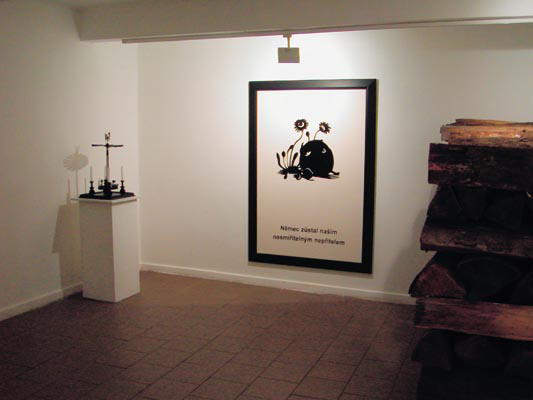
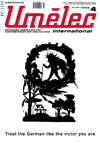






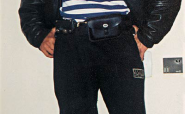
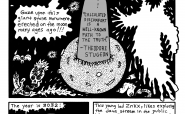
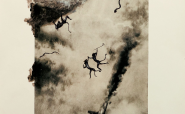
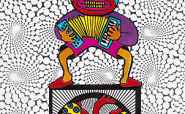
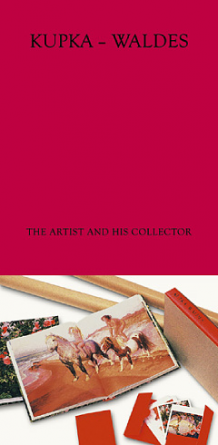






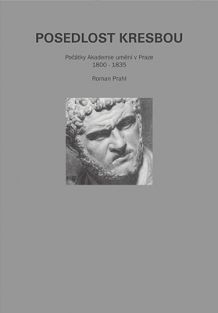




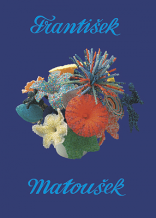
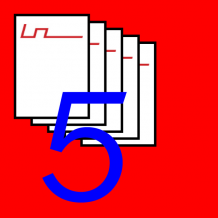
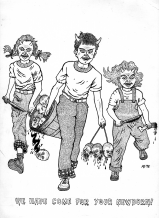
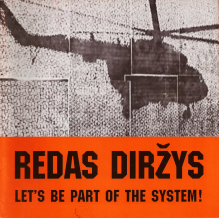


 New book by I.M.Jirous in English at our online bookshop.
New book by I.M.Jirous in English at our online bookshop.
Комментарии
Статья не была прокомментированаДобавить новый комментарий